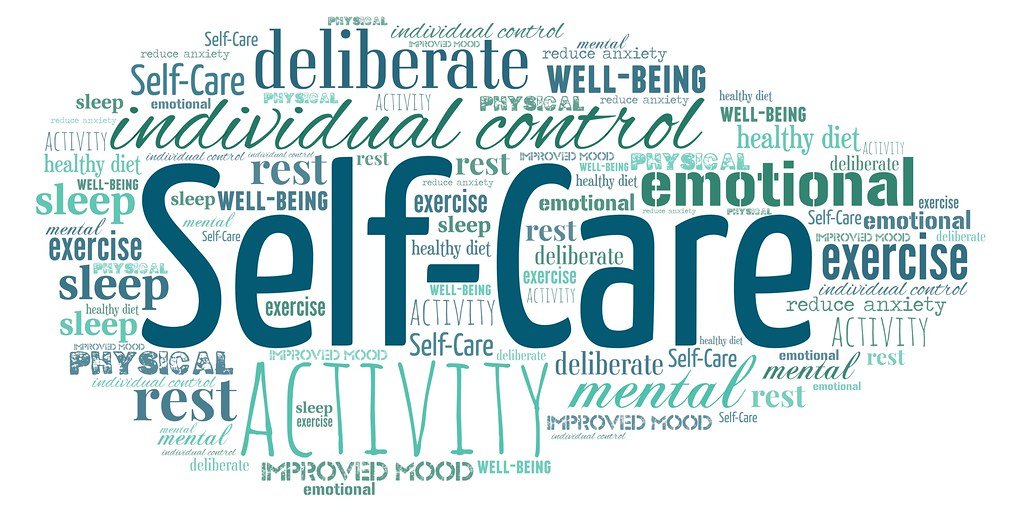Having a baby is a truly miraculous and life-altering experience that can bring boundless joy to a mother’s life. However, nestled amidst the euphoria of cradling your precious bundle of joy, a whirlwind of hormonal changes comes crashing ashore. From fluctuating moods to unexpected physical transformations, navigating the postpartum period can be both bewildering and overwhelming. But fear not, for understanding these hormonal fluctuations and finding effective ways to manage them is the key to reclaiming control and embracing this beautiful new chapter of your life. In this article, we will delve into the realm of postpartum hormonal transitions and unveil practical strategies to help you sail through this transformative journey with confidence and poise.
Table of Contents
- Understanding the Profound Impact of Hormonal Changes Postpartum
- Nurturing Physical and Emotional Well-being through Self-care
- Building a Support System: Communicating and Seeking Help
- Balancing Hormonal Changes with a Healthy Lifestyle
- Embracing the Journey: Celebrating Progress and Accepting Challenges
- Q&A
- Insights and Conclusions

Understanding the Profound Impact of Hormonal Changes Postpartum
Hormonal changes postpartum are a natural and remarkable occurrence in a woman’s body. These changes play a significant role in the physical, emotional, and mental well-being of new mothers. It is essential to understand the profound impact these hormonal fluctuations can have on the body to provide adequate support and care during this delicate period.
During pregnancy, a woman’s body undergoes a surge in hormones, including progesterone and estrogen, to support the growth and development of the baby. After childbirth, these hormones quickly drop, causing a cascade of changes. This dramatic hormonal shift can result in various physical symptoms, such as:
- Postpartum bleeding and discharge
- Engorged and sensitive breasts
- Fluctuating body temperature and night sweats
- Changes in skin texture and hair loss
Additionally, hormonal changes postpartum can deeply impact a woman’s emotional well-being. With the sudden decrease in hormones, new mothers may experience postpartum baby blues or even postpartum depression due to the sensitive state of their mental health. It is crucial to recognize and address any emotional changes promptly to provide the necessary support and care.

Nurturing Physical and Emotional Well-being through Self-care
Self-care is the key to nurturing our physical and emotional well-being. In this fast-paced world, it’s crucial to prioritize our own needs and take the time to replenish our minds and bodies. Whether it’s indulging in a luxurious bubble bath, practicing mindfulness exercises, or simply taking a leisurely walk in nature, there are countless ways to take care of ourselves.
One essential aspect of self-care is maintaining a balanced and nutritious diet. Nourishing our bodies with wholesome foods not only fuels us physically but also has a profound impact on our emotional well-being. Choose to incorporate vibrant fruits and vegetables into your meals, savoring every bite mindfully. Don’t forget to stay hydrated by drinking plenty of water throughout the day.
Another important aspect of self-care is carving out time for regular exercise. Engaging in physical activities we enjoy not only helps us stay fit but also releases endorphins, boosting our mood and reducing stress. Whether it’s practicing yoga, going for a run, or joining a dance class, find an exercise routine that brings you joy and make it a part of your self-care ritual.
Lastly, self-care involves nurturing our emotional well-being. Whether it’s journaling our thoughts and emotions, seeking therapy or counseling, or simply spending quality time with loved ones, it’s important to prioritize our mental health. Taking breaks from technology and disconnecting from the constant noise of the world allows us to reconnect with ourselves and embrace stillness.
Remember, self-care is not selfish. It is necessary for us to be able to show up fully in our lives and for those around us. By prioritizing self-care and nurturing our physical and emotional well-being, we are ensuring a healthier and more fulfilling journey through life. So, treat yourself with care and kindness, because you deserve it.
Building a Support System: Communicating and Seeking Help
When faced with challenges, it’s essential to have a strong support system in place. Communicating effectively and seeking help when needed can make the journey towards success a little easier. Here are a few tips on how to build and maintain a solid support system:
- 1. Open up: Be open and honest about your struggles and needs. Sharing your thoughts and emotions with trusted friends or family members can help alleviate stress and provide valuable insights.
- 2. Seek guidance: Remember that seeking help is not a sign of weakness, but rather a strength. Reach out to mentors, coaches, or professionals who can offer advice and expertise in areas where you need support.
- 3. Join support groups: Connecting with others who are facing similar challenges can be incredibly empowering. Join support groups, either online or in person, where you can share experiences, learn from others, and offer mutual support.
- 4. Set boundaries: While support is crucial, it’s vital to set boundaries to ensure a healthy balance. Establish limits on how much time and energy you can dedicate to supporting others, always prioritizing your own well-being.
- 5. Practice active listening: When seeking help, listen actively to the advice and feedback you receive. Take the time to understand different perspectives and consider incorporating valuable insights into your own journey.
- 6. Be grateful: Express gratitude towards those who support you along the way. Appreciating the efforts of your support system can strengthen your relationships and inspire them to continue being there for you.
Remember, building a support system is an ongoing process. Nurture these connections, communicate honestly, and don’t hesitate to seek help when needed. Together, we can overcome any obstacle and thrive.

Balancing Hormonal Changes with a Healthy Lifestyle
Hormonal changes can greatly impact our daily lives, but with a few simple lifestyle tweaks, we can maintain a harmonious balance. By adopting a healthy lifestyle, we can help alleviate the symptoms and navigate through these changes more smoothly.
1. Embrace Regular Exercise:
Engaging in physical activity not only helps to keep your body strong and fit, but it also plays a crucial role in regulating hormones. Aim for at least 30 minutes of exercise, such as brisk walking, yoga, or swimming, on most days of the week. Stay consistent, as regular exercise promotes the release of endorphins, which can boost your mood and reduce the impact of hormonal fluctuations.
2. Nurture a Balanced Diet:
Your diet plays a significant role in managing hormonal changes. Incorporate a variety of whole foods rich in nutrients, including fruits, vegetables, lean proteins, and complex carbohydrates. Omega-3 fatty acids found in fatty fish like salmon and mackerel, as well as nuts and seeds, can help regulate hormones. Remember, consistency is key when nourishing your body!
3. Prioritize Stress Management:
Stress can wreak havoc on hormonal balance. Find healthy ways to manage stress, such as practicing meditation, deep breathing exercises, or engaging in activities you enjoy. Make time for self-care and prioritize sleep to ensure your body gets the rest it needs. Remember to take a step back when things get overwhelming and give yourself the space to relax and recharge.
4. Consult a Healthcare Professional:
If you are experiencing severe or persistent symptoms related to hormonal changes, don’t hesitate to seek guidance from a healthcare professional. They can provide specialized advice and potentially recommend hormonal therapies or other interventions that can help you maintain a healthy hormonal balance.
By incorporating these healthy lifestyle choices, you can tackle hormonal changes head-on while promoting overall well-being. Remember, be patient with yourself and embrace the journey of finding what works best for you!
Embracing the Journey: Celebrating Progress and Accepting Challenges
Life is a beautiful journey filled with countless experiences that shape us into who we are. Along the way, we encounter moments of triumph and moments of hardship. It is essential to reflect on our progress and embrace the journey as a whole, for it is through both our achievements and challenges that we truly learn and grow.
Celebrating progress is an integral part of self-development. Each small step forward, no matter how insignificant it may seem, brings us closer to our goals. Whether it’s mastering a new skill, overcoming a fear, or achieving a milestone, taking a moment to acknowledge and appreciate your accomplishments can provide a tremendous sense of fulfillment. Embrace the joy of progress; it is the fuel that propels us forward on this extraordinary expedition called life.
Challenges, on the other hand, are the stepping stones that lead us to greatness. They teach us valuable lessons, reshape our perspectives, and foster resilience within us. Accepting challenges with an open mind and a willingness to learn allows us to tap into our hidden potential and discover strengths we never knew we had. Instead of fearing obstacles, view them as opportunities for growth. Embrace the discomfort, embrace the uncertainty, and trust that through each challenge, you are becoming a stronger, wiser, and more compassionate individual.
Embracing the Journey: Tips for Celebrating Progress and Accepting Challenges
- Reflect on Your Success: Take time to acknowledge and appreciate each milestone you achieve, no matter how small.
- Celebrate with Others: Share your achievements with loved ones and give yourself a pat on the back for the hard work you’ve put in.
- Stay Positive: In the face of challenges, maintain a positive mindset and remind yourself that every obstacle is an opportunity for growth.
- Lean on Your Support System: Surround yourself with people who believe in you and provide guidance and encouragement when faced with difficulties.
- Embrace Failure: Accept that failure is a natural part of the journey. Instead of being discouraged, learn from your mistakes and use them as stepping stones to future success.
- Find Inspiration in Others: Seek out stories of individuals who have overcome challenges similar to yours. Let their accomplishments fuel your determination and inspire you to keep pushing forward.
Q&A
How to Manage Hormonal Changes Postpartum
Why do women experience hormonal changes after giving birth?
During pregnancy, your body produces high levels of hormones to support the growth and development of your baby. After giving birth, these hormone levels drop drastically, causing various physical and emotional changes.
What are some common hormonal changes women might experience postpartum?
Common hormonal changes include mood swings, fatigue, postpartum depression, changes in breast milk supply, and irregular menstrual cycles.
Are there any natural ways to manage hormonal changes postpartum?
Yes, there are several natural ways to manage hormonal changes postpartum. These include getting enough rest, maintaining a healthy diet, staying physically active, seeking support from loved ones, and engaging in stress-reducing activities such as meditation or yoga.
When should I seek medical advice for hormonal changes postpartum?
If you experience severe mood swings, persistent feelings of sadness or hopelessness, difficulty bonding with your baby, or any other concerning symptoms, it is important to reach out to your healthcare provider for support and guidance.
Can breastfeeding affect hormonal changes postpartum?
Absolutely! Breastfeeding triggers the release of oxytocin, a hormone that promotes milk production and can help reduce stress levels. It can also assist in contracting the uterus back to its pre-pregnancy size, aiding in hormonal balance.
How long do hormonal changes postpartum typically last?
Hormonal changes can vary from woman to woman, but typically these changes begin to stabilize within the first few weeks to months after giving birth. However, it is essential to remember that everyone’s experience is unique.
Are there any additional resources available?
Yes, you can reach out to your healthcare provider, who can provide further advice and support. Additionally, online communities, books, and support groups can be valuable resources for connecting with other women who have gone through similar experiences.
Insights and Conclusions
As we conclude this journey through the myriad of hormonal changes that accompany the postpartum period, let us take a moment to appreciate the marvel that is the human body. Motherhood, with its triumphs and trials, unravels a tapestry of emotions and experiences like no other. From the breathtaking joy of holding your little one for the first time, to the inexplicable moments of overwhelming exhaustion, the hormonal rollercoaster can feel like uncharted territory.
But fear not, for you are not alone in this transformative chapter. By now, armed with knowledge and understanding, you have unlocked the key to navigate the labyrinth of hormonal changes. Remember, your body is a remarkable vessel, capable of adapting and healing with time.
As you continue to embark on this beautiful path, remember to be kind to yourself. Adjusting to these hormonal shifts takes patience, for perfection is an illusion. Trust the process, honoring the journey of rediscovering your body and allowing it to heal at its own pace.
Self-care becomes essential during this tender period of exploration. Pamper yourself with restful moments, indulge in nourishing foods, and seek solace in the arms of loved ones. Prioritize your emotional well-being and be unapologetic in advocating for yourself. Remember, caring for yourself allows you to better care for your little one.
Seek support from fellow mothers, who share the unique bond of having endured the very same hormonal dance. Engage in conversations that normalize the fluctuations, the mood swings, and the challenges that come with postpartum hormonal changes. For in unity lies strength, and together we can empower one another through this transformative phase.
And as we bid farewell to this chapter, embrace the beauty of the change that motherhood brings. Embrace the unknown, for it is within those moments that we discover our own resilience and capacity to love unconditionally. Embrace the journey of embracing yourself, as you navigate the ever-changing rhythms of hormones and emotions.
So, dear reader, let this knowledge guide you as you embark on this incredible voyage. May it serve as a compass, gently whispering reassurance and reminding you of your own inner strength. Remember, managing hormonal changes postpartum is not a sprint—it’s a dance, with each step bringing you closer to the extraordinary woman you are becoming.
As an affiliate, my content may feature links to products I personally use and recommend. By taking action, like subscribing or making a purchase, you’ll be supporting my work and fueling my taco cravings at the same time. Win-win, right?
Want to read more? Check out our Affiliate Disclosure page.